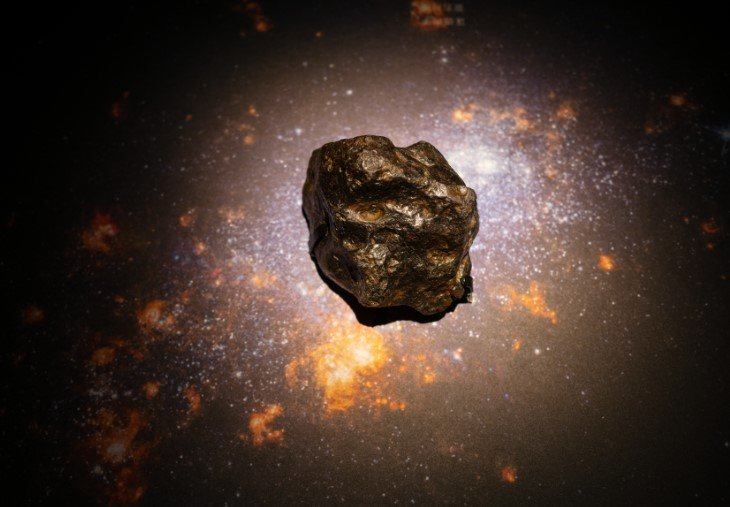A meteorite that tore through the roof of a Georgia home in June has turned out to be far older than our planet — and possibly one of the oldest objects anyone in the state has ever touched.
A Blazing Arrival Over the Southeast
On June 26, the mid-afternoon calm over Georgia’s skies was broken by a streak of light and a deafening boom.
NASA confirmed the object was a meteorite, visible in broad daylight, that had exploded over the state before dropping fragments to the ground.
Hundreds of residents across Georgia and neighboring states reported sightings, some describing it as a “shooting star on steroids.”
One of those fragments didn’t just land in a field or forest.
It pierced the roof of a home in McDonough, Henry County, startling its owner and sending space debris scattering through the property.
The Rock’s Ancient Past
Scientists from the University of Georgia were called in to examine the mysterious object.
Using optical and electron microscopy, geologist Scott Harris and his team determined it was a chondrite — the most common type of stony meteorite known to science.
That classification placed its formation date at about 4.56 billion years ago.
For perspective, Earth itself is roughly 4.54 billion years old.

That means the McDonough meteorite predates our planet by around 20 million years, existing before our oceans, continents, or atmosphere had even formed.
“It’s like holding a time capsule from before the Earth was finished being built,” Harris said.
“This rock has been traveling through space for billions of years before ending its journey in someone’s living room.”
From Space to a Suburban Roof
The meteorite’s journey through the atmosphere was brief but dramatic.
It entered at incredible speed, slowing down as it burned and fragmented, yet still hitting the home at at least 1 km per second.
The force left a hole in the roof and scattered fragments inside.
The resident, who asked not to be named, said he’s still finding space dust weeks later.
“You clean one corner, and then there’s another little glittery piece stuck behind a picture frame,” he said.
Rare Find in Georgia
While Georgia has had its share of meteorite recoveries, this one stands out for both its age and its circumstances.
The McDonough meteorite is officially the 27th recovered in the state, but scientists note the pace of discoveries has quickened.
Harris believes two main factors are at play:
-
Modern detection tools such as high-resolution satellites and radar systems.
-
A more alert public, aided by doorbell cameras, dash cams, and social media.
“This used to be something we expected once every few decades,” Harris said.
“Now, thanks to technology and public reporting, we’re seeing multiple cases in 20 years.”
A Scientific Treasure
For researchers, chondrites are more than just old rocks — they’re keys to understanding how our solar system came together.
These meteorites are thought to be remnants of the original material that formed the planets and moons.
“Every grain tells a story,” Harris explained.
“We’re looking at minerals that have never been altered by Earth’s processes. They’re as close as we can get to the building blocks of the solar system.”
The McDonough samples will be studied further for isotopic composition, mineral structure, and even traces of organic compounds.
While unlikely to contain life, such rocks can help scientists learn how the ingredients for life may have traveled across space.
Public Fascination
News of the meteorite has sparked excitement far beyond Georgia.
Local museums have already requested small fragments for display.
Meanwhile, meteorite collectors have reached out to the homeowner, offering to buy pieces — though so far, he says, he’s keeping them.
“I figure it’s not every day a rock older than Earth drops in your lap,” he said with a laugh.
“It can stay right here for a while.”
